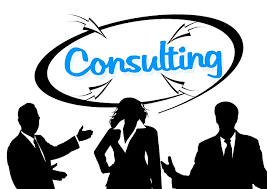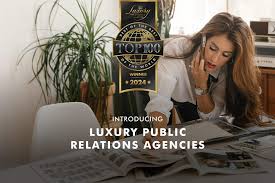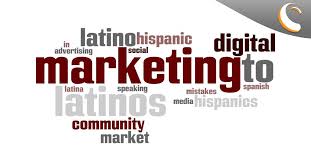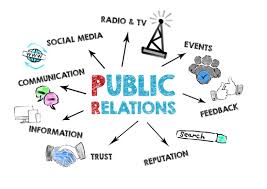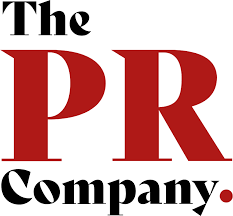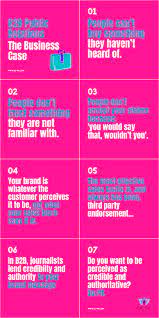Empowering Connections: The Art of Strategic Outreach in Building Relationships
The Power of Outreach in Building Strong Relationships
Outreach is a fundamental aspect of communication and relationship-building in today’s interconnected world. It involves reaching out to individuals or groups to establish connections, share information, and foster meaningful interactions. Whether it’s for personal or professional purposes, effective outreach can lead to valuable opportunities, partnerships, and collaborations.
One of the key benefits of outreach is its ability to expand networks and reach new audiences. By proactively engaging with others, whether through social media, email, events, or other channels, individuals and organisations can connect with a diverse range of people who may share common interests or goals. This can open doors to new ideas, perspectives, and possibilities that may not have been accessible otherwise.
Furthermore, outreach plays a crucial role in building trust and credibility. By demonstrating genuine interest in others and offering value through relevant content or resources, individuals and organisations can establish themselves as trusted sources of information and expertise. This trust forms the foundation for strong relationships that can endure challenges and setbacks over time.
Another significant aspect of outreach is its role in fostering collaboration and mutual support. By engaging with like-minded individuals or organisations, opportunities for partnerships, joint projects, and shared initiatives can emerge. Through collaborative efforts, participants can leverage each other’s strengths and resources to achieve common goals more effectively than working alone.
In today’s digital age, outreach has evolved beyond traditional methods to encompass a wide range of online platforms and tools. Social media platforms such as LinkedIn, Twitter, and Instagram provide avenues for connecting with professionals and influencers across industries. Email marketing campaigns enable businesses to communicate directly with their target audience in a personalised manner. Virtual events offer opportunities for networking and knowledge sharing on a global scale.
Overall, outreach remains a powerful tool for building relationships that are based on trust, respect, and shared values. By investing time and effort into meaningful interactions with others, individuals and organisations can create a strong foundation for future collaborations, partnerships, and growth.
Essential FAQs on Outreach: Understanding, Improving, and Measuring Success
- What is outreach?
- Why is outreach important?
- How can I improve my outreach efforts?
- What are the benefits of engaging in outreach activities?
- What are some effective strategies for successful outreach?
- How can I measure the success of my outreach campaigns?
- What are the common challenges faced in outreach initiatives?
- How can I identify target audiences for my outreach efforts?
- What role does technology play in modern-day outreach practices?
What is outreach?
Outreach is a proactive approach to communication and relationship-building that involves reaching out to individuals or groups with the aim of establishing connections, sharing information, and fostering meaningful interactions. It encompasses various methods such as social media engagement, email campaigns, networking events, and collaborations to expand networks, build trust, and create opportunities for partnerships. Through outreach efforts, individuals and organisations can connect with a diverse range of people, demonstrate expertise and credibility, and cultivate relationships that are essential for personal growth and professional success in today’s interconnected world.
Why is outreach important?
Outreach is important for several reasons. Firstly, it helps individuals and organisations expand their networks and reach new audiences, leading to potential opportunities for collaboration and growth. Secondly, outreach plays a crucial role in building trust and credibility by demonstrating genuine interest in others and offering value through meaningful interactions. Additionally, outreach fosters relationships based on mutual support and shared goals, enabling participants to leverage each other’s strengths for collective success. Overall, outreach is a key strategy for establishing connections, building relationships, and creating opportunities that can lead to long-term benefits and sustainable growth.
How can I improve my outreach efforts?
To enhance your outreach efforts, it is essential to first define your target audience and tailor your communication strategies to resonate with their needs and interests. Researching and understanding your audience’s preferences, behaviours, and challenges can help you create more relevant and engaging outreach messages. Utilising a multi-channel approach, such as combining social media, email marketing, networking events, and personalised interactions, can also increase the reach and impact of your outreach efforts. Additionally, regularly evaluating the effectiveness of your outreach campaigns through analytics and feedback mechanisms allows for continuous improvement and refinement of your communication tactics. By focusing on building genuine connections, providing value to your audience, and adapting to evolving trends, you can strengthen your outreach efforts and cultivate lasting relationships with individuals and organisations.
What are the benefits of engaging in outreach activities?
Engaging in outreach activities offers a multitude of benefits that can significantly impact individuals and organisations. By proactively reaching out to others, one can expand their network, reach new audiences, and establish valuable connections. Outreach activities also help in building trust and credibility by showcasing genuine interest in others and providing relevant information or resources. Furthermore, engaging in outreach fosters collaboration and partnership opportunities, enabling participants to leverage each other’s strengths for mutual growth and success. Overall, the benefits of engaging in outreach activities include networking opportunities, trust-building, collaboration potential, and the ability to reach shared goals more effectively through collective efforts.
What are some effective strategies for successful outreach?
When it comes to successful outreach, there are several effective strategies that can help individuals and organisations achieve their goals. One key strategy is to thoroughly research and understand your target audience or recipients before reaching out. Tailoring your message to resonate with their interests, needs, and preferences can significantly increase the chances of a positive response. Additionally, personalising your outreach efforts by addressing recipients by name and referencing specific details relevant to them can help establish a connection and make your communication more engaging. Building relationships through consistent and genuine interactions, providing value through informative content or resources, and following up promptly can also contribute to successful outreach efforts. Lastly, leveraging various communication channels such as email, social media, networking events, and collaborations with influencers can help expand your reach and maximise the impact of your outreach campaigns. By implementing these strategies thoughtfully and strategically, individuals and organisations can enhance their outreach efforts and build strong relationships with their target audience.
How can I measure the success of my outreach campaigns?
Measuring the success of outreach campaigns is essential to understanding their impact and effectiveness. One common way to gauge success is through tracking key performance indicators (KPIs) such as engagement metrics, conversion rates, and reach. By analysing data on responses, clicks, shares, and other interactions, you can assess the level of interest and response generated by your outreach efforts. Additionally, monitoring qualitative feedback from recipients can provide valuable insights into the quality of relationships built through outreach. Regularly reviewing these metrics and adjusting strategies based on the results can help optimise future campaigns for greater success and impact.
What are the common challenges faced in outreach initiatives?
In the realm of outreach initiatives, common challenges often revolve around reaching the right audience effectively, maintaining engagement levels, and measuring the impact of outreach efforts. Identifying and engaging with a target audience that is receptive to the message can be a hurdle, as it requires thorough research and understanding of their preferences and needs. Sustaining interest and interaction over time poses another challenge, as maintaining momentum and relevance in communications can be demanding. Additionally, measuring the success and return on investment of outreach activities can be complex, requiring robust metrics and analytics to evaluate effectiveness accurately. Overcoming these challenges demands strategic planning, continuous adaptation, and a commitment to refining outreach strategies for optimal results.
How can I identify target audiences for my outreach efforts?
Identifying target audiences for outreach efforts is a crucial step in developing effective communication strategies. To pinpoint your target audience, start by conducting thorough research to understand the demographics, interests, behaviours, and preferences of potential recipients. Utilise data analytics tools to gather insights on your existing customer base and identify common characteristics among them. Create buyer personas that represent your ideal customers, including details such as age, gender, location, profession, challenges, and goals. Additionally, engage in social listening to monitor online conversations and trends related to your industry or niche. By combining these methods, you can tailor your outreach efforts to resonate with the right audience and maximise engagement and impact.
What role does technology play in modern-day outreach practices?
In modern-day outreach practices, technology plays a pivotal role in enhancing communication and expanding reach. Technology enables individuals and organisations to connect with a global audience through various digital platforms such as social media, email marketing, virtual events, and online networking tools. These technological advancements facilitate faster and more efficient outreach efforts, allowing for real-time interactions, targeted messaging, data analytics for performance tracking, and automation of repetitive tasks. By leveraging technology in outreach practices, individuals and organisations can amplify their voice, engage with diverse audiences, build relationships at scale, and ultimately achieve their communication goals more effectively in today’s interconnected world.




